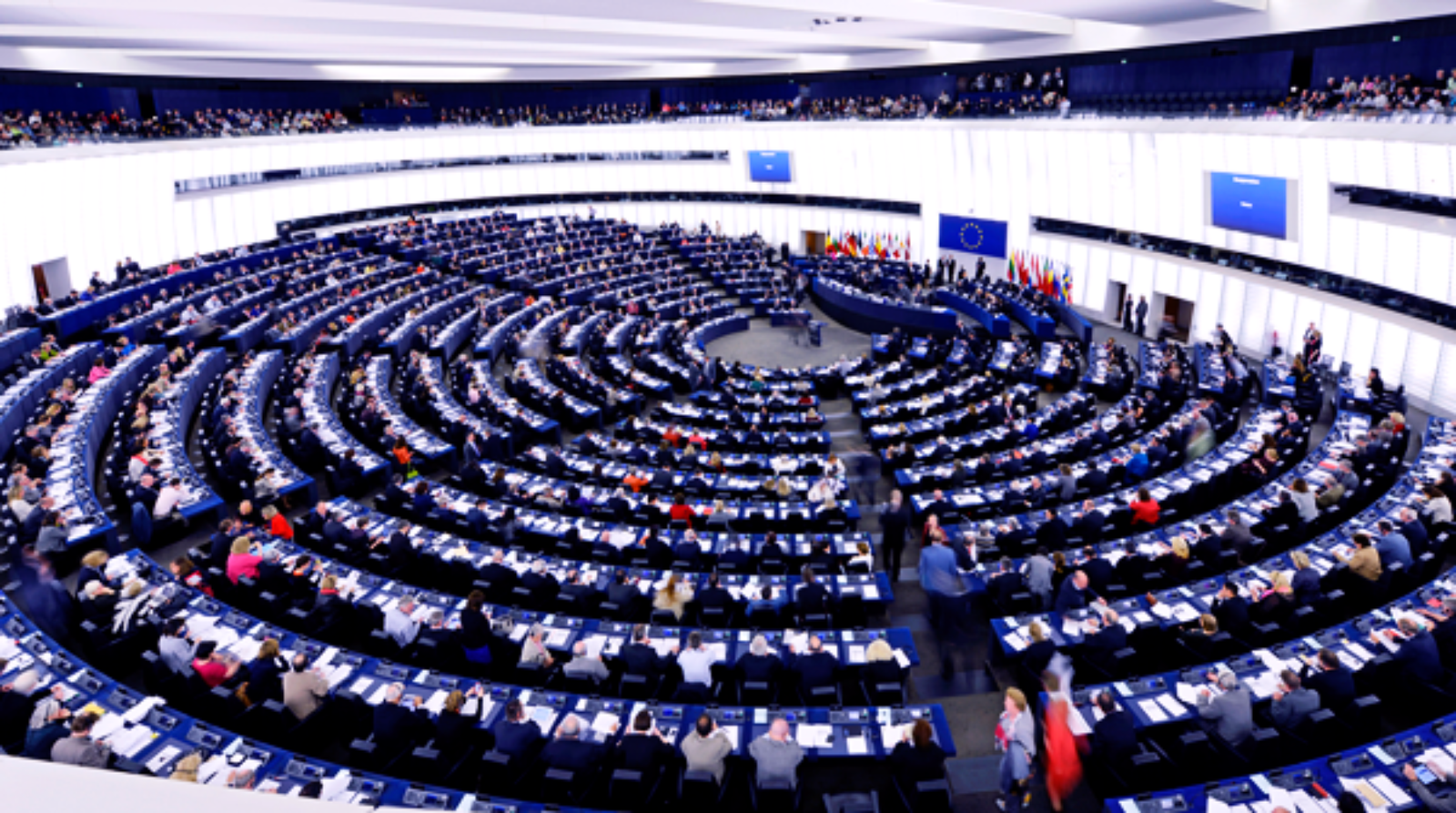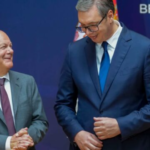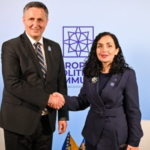The first plenary week of the newly constituted European Parliament was focused on the formation of the necessary structures for the functioning of this institution, as well as on the voting of Ursula von der Leyen as president of the European Commission for another five-year term.
Among the main structures of the European Parliament, which were voted for from the beginning, are the President of the Parliament and the 14 vice-presidents.
Roberta Metsola was re-elected to the post of president for a term of two and a half years.
What was noticed as special in the voting for the 14 vice-presidents, was the fact that no candidate of the far-right political groups passed.
The “Patriots” group and the “Sovereignists” group have this epithet in this composition.
Although the newly formed “Patriots” grouping is the third largest in the European Parliament, its vice-presidential candidates did not receive enough votes to be elected.
Candidates from the smaller groups, such as the Liberals, the Greens and the Left, were elected to the positions of vice-presidents.
According to many members of the European Parliament, this vote was the result of an informal agreement between the centrist groups and the moderate parties, to prevent far-right members from taking important positions, through which they could have greater role in the work of the structures of the European Parliament.
Such behavior is called “sanitary cordon” towards groups, which are considered populist and destructive by traditional parties.
Some members of the European Parliament, who were also in the previous composition, told Radio Free Europe that they will make efforts to prevent far-right groups from taking on roles in the EU enlargement process as well. important.
The European Parliament has already voted for the parliamentary committees and for the members who will have them, as well as for their size.
The commission for foreign policy will be among the largest and it will also deal with issues related to the Western Balkans and the enlargement process.
In this commission, the rapporteurs for each country of the Western Balkan region will be appointed, and then also the heads of joint inter-parliamentary delegations.
Usually, these functions are also divided based on the number of deputies that the given parties have in the Commission.
The reports for the countries of the enlargement process are compiled and approved first in the Foreign Policy Committee, and then go to the plenary session, where they are approved in the form of a Resolution of the European Parliament.
Among the candidates for the chairman of the Foreign Policy Committee, David McAlister, the center-right MP from Germany, who was in this position in the last term, is mentioned again.
The rapporteurs and heads of delegations will be voted on in the autumn session of the European Parliament.
Despite the increase in the number of deputies from the extreme right, even in this composition of the Committee for Foreign Policy, as well as in general in the European Parliament, there is a large majority, which supports the enlargement process and the faster advancement of the process of the integration of the countries of the Western Balkans in the EU.
That the forces that are called “pro-European” have the necessary majority in the European Parliament, was also seen during the vote to confirm Ursula von der Leyen in the position of the president of the European Commission, according to the agreement on which the three main parties of the center had agreed : European People’s Party (EPP), Socialists and Democrats (S&D) and Liberals.
Together, they have more than 400 MEPs out of 720 in the European Parliament in total.
In addition to these parties, there is support for the enlargement process from the Green group and even from the majority of the conservative and reformist group, who, although they do not want the strengthening of the EU through new powers, support the enlargement.
When it comes to the extreme right, there are many differences among them in terms of expansion.
A part – especially those coming from France and the Netherlands – sees the enlargement of the EU as a process that presents a risk of migration from poor countries, which would damage the labor market in the EU.
However, there are also parties from Hungary and other countries among them, which support some candidate countries, but not all.
Deputies from the Fidesz Party of the Hungarian Prime Minister, Viktor Orban, who has now formed the “Patriots” group, are skeptical about the possibility of Ukraine’s admission to the EU, but, on the other hand, support the six countries of the Western Balkans: Kosovo, Albania, Macedonia and North, Serbia, Montenegro and Bosnia and Herzegovina.
Apart from Kosovo, they are either candidate countries for membership, or are in negotiations for membership.
Kosovo has only applied for membership in 2022, but has not yet received any response.
Even in the past, in the debates about the enlargement of the EU, the MPs from the extreme right have been vocal against the enlargement, but they have not had any important role or any influence.
In the European Parliament, they expect it to remain so even in this composition. The re-elected president of the European Parliament, Roberta Metsola, as well as the re-elected president of the European Commission, Ursula von der Leyen, have warned that they will have EU enlargement as a high priority in their work in the next five years.
For the support of this process, there is a large majority even in this composition of the European Parliament. However, the fate of the process remains in the hands of the member countries, as decisions are made in the EU Council, where each country has the right to veto./REL/







